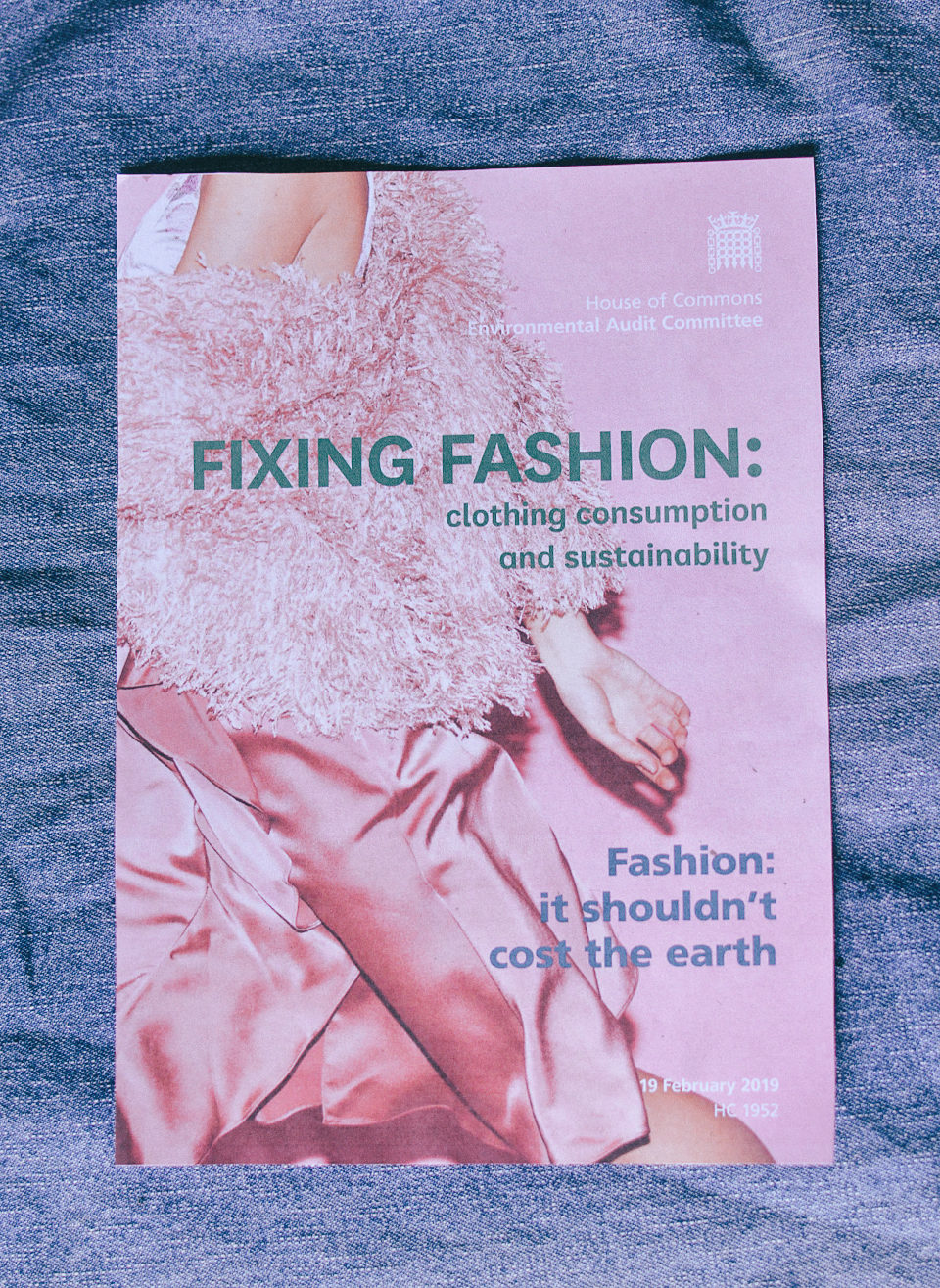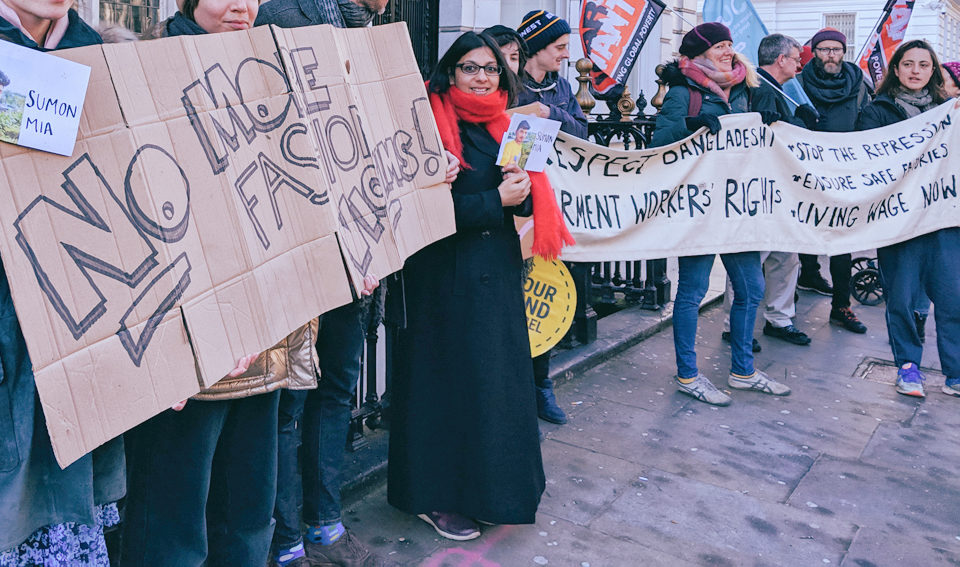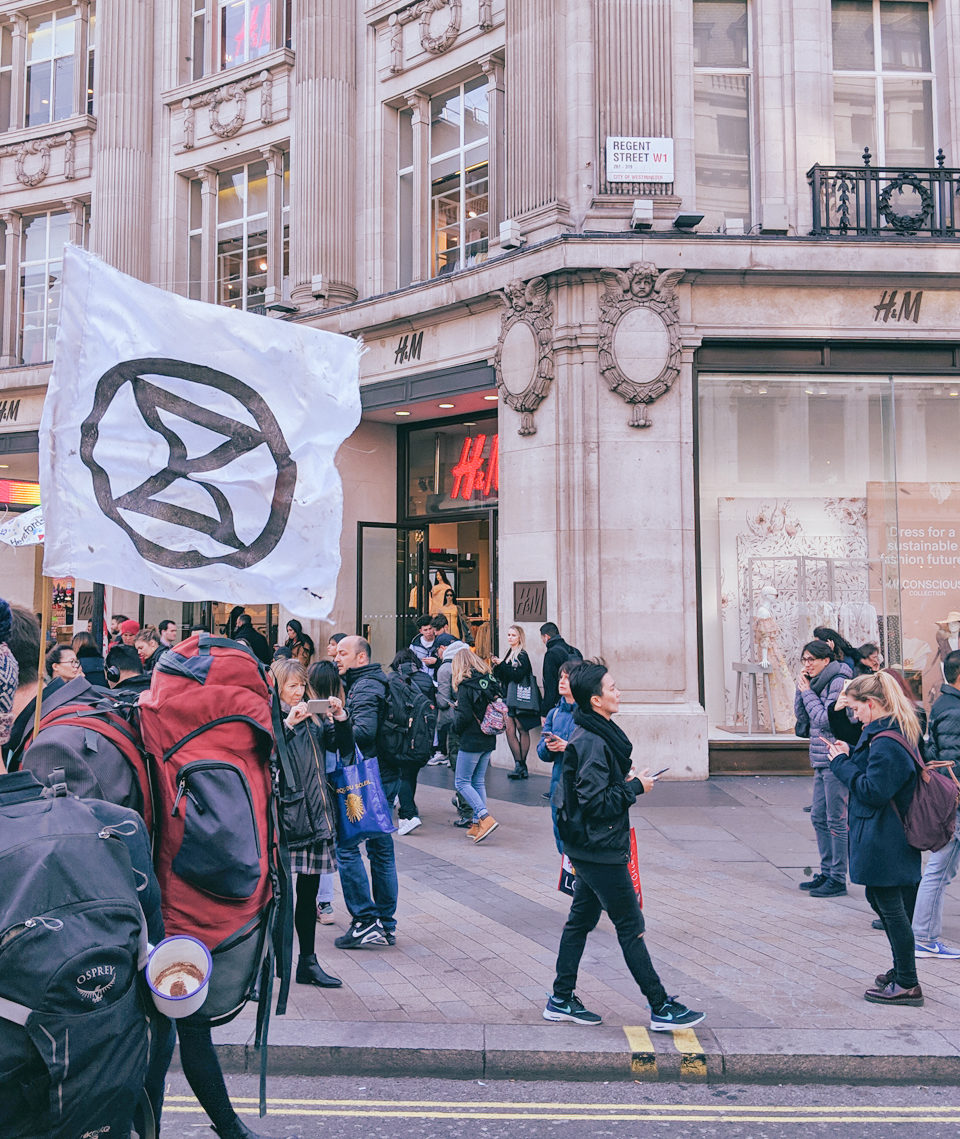Climate and environmental activism isn’t new but its most certainly becoming a more common title that people are willing to label themselves as. The climate and ecological emergency is something that threatens all life on earth, so, it’s no surprise that over 7 million people have taken to striking and that over 31,000 people have expressed their interest in participating in Extinction Rebellion UK’s upcoming actions…
However, I recently asked my Instagram followers what stops them from participating in direct climate activism (like the recent Global Climate Strike) and the responses made it incredibly clear why we need to be listening to the masses in order to make movements more accessible for all.
Answers included mental health; physical disabilities; chronic pain; lack of time due to lifestyle and education; anxiety and panic disorders; caring for children and even living in countries which don’t allow for freedom of speech – there are a myriad of reasons why many people can’t take to physical forms of activism (such as a swarming, blocking roads and taking part in strikes and marches).
It wouldn’t be right for me to offer solutions to these very specific and individual cases which often don’t have quick fixes, however, I do believe I can help break down the idea that direct climate activism (or any direct activism, really) can only be supported in those sometimes physically draining and emotionally-tolling activities.
Climate activism (by the likes of Extinction Rebellion – which the majority of my direct activism experience comes from) involves so many roles behind-the-scenes that can be just as vital as those willing to break laws or put themselves up for arrest. Using my own personal experience, I’ve created this basic list which covers some of the ways that I have indirectly supported climate activists and how you can, too…

~ ARRESTEE SUPPORT ~
I have attended court hearings and final verdict hearings in support of local rebels after they have been arrested on actions. This has involved attending court from a few hours to a full day, listening to the proceedings and providing emotional and physical support when needed. For example; giving hugs, doing coffee runs or making sure that people are in the right place at the right time.
How to do it?
Connect with your local activist groups or have an Ecosia (web browser) search for upcoming court dates related to recent actions. Even if you don’t know the individuals, court cases are open to public viewing which means you can come and show that they have people on their side. If you’re part of Extinction Rebellion, you can also put yourself up for an official Arrestee Support role in your local group.
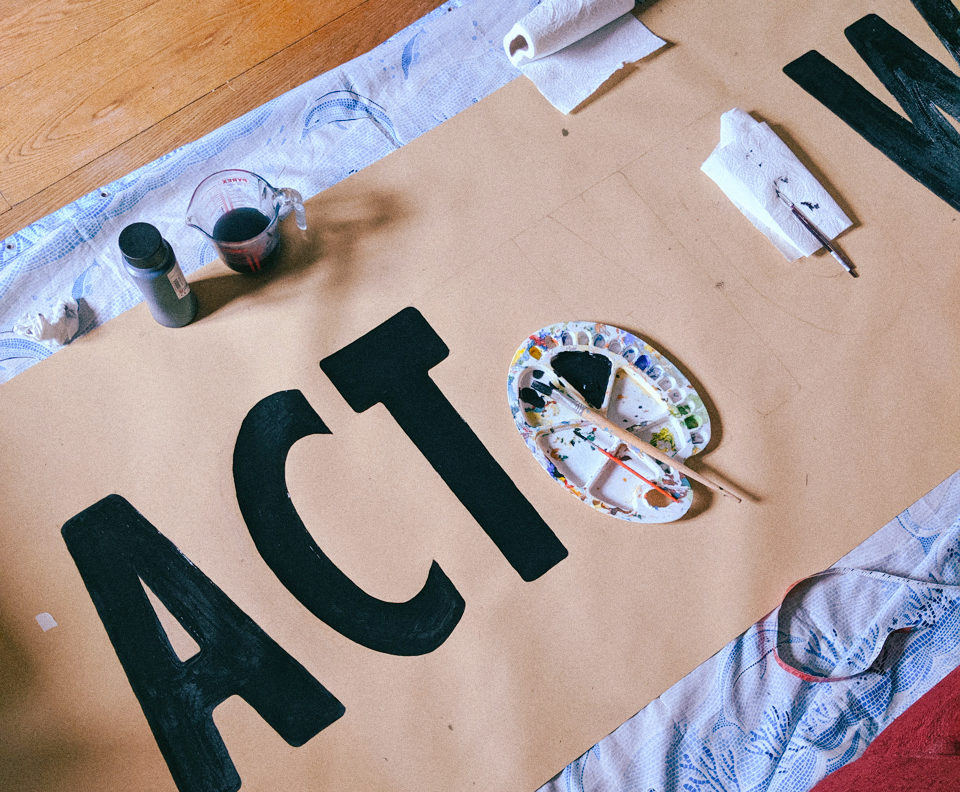
~ ART & DESIGN ~
I’ve created graphics and flyer designs for local actions, in order to support the promotion of actions (even if I haven’t been part of them in a direct way). For example, I created the map used during Extinction Rebellion Bristol’s Summer Uprising, which displayed things like accessible toilets, the kitchen and camping site. I’ve also painted and designed banners for ‘swarming’ (blocking roads) which have been used on actions and become part of my local group’s identity – using upcycled materials, of course.
How to do it?
If you have the tools – you are free to create whatever you think can aid a movement. For Extinction Rebellion, there is a full guide to the ART that is used across the Rebellion; it’s important to stick to the guides as it keeps things as impactful as possible.
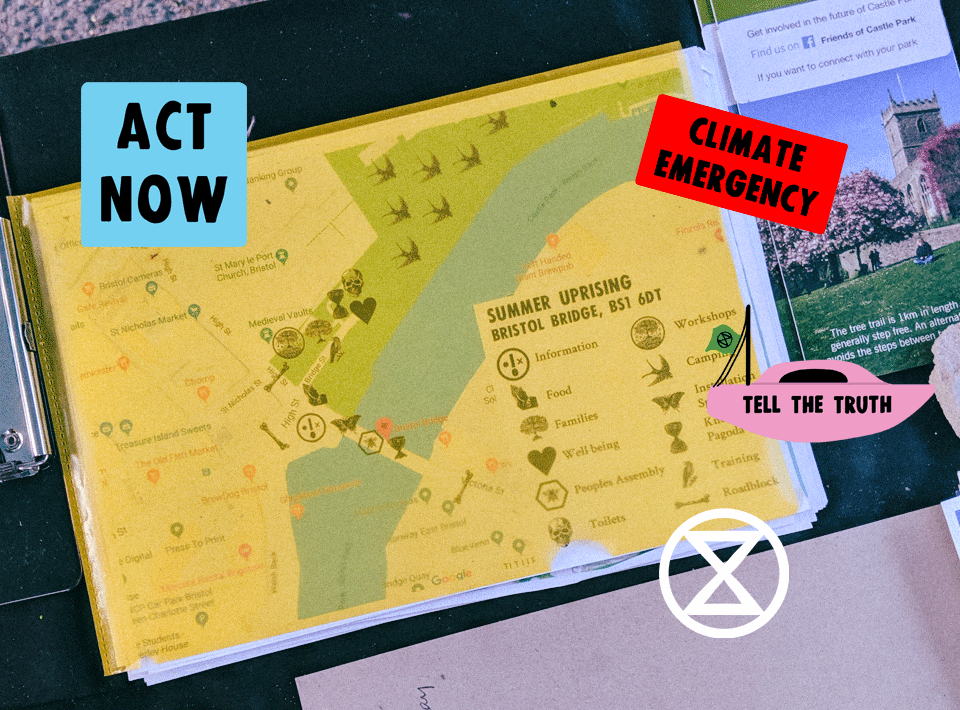
~ SOCIAL MEDIA ~
On a similar vein, a lot of the work I do is on social media. I’ve designed the official GIF stickers for Extinction Rebellion; once again, designed graphics for my local groups and upcoming events and have promoted actions in order to reach wider audiences who might be interested in supporting the movement and telling the truth about the climate emergency.
How to do it?
Anyone can support climate activism by using social media. Share tweets from activists (making sure to include minorities or groups who don’t always get the spotlight) or promote upcoming actions. Follow activist groups in your area, even if you’re unable to support in person. With activist groups, typically, this kind of role can be shared so that no one person is solely relied upon, meaning this is a really great role if you have limited time on your hands but you still want to play your part.

~ OUTREACH ~
Supporting direct-action doesn’t always mean taking to the streets or participating in a march or strike; it can also mean doing outreach to find those who are willing to take to the streets, by spending a weekend or a few hours doing things such as leafleting or stall-running. Locally, I’ve worked on stalls which have combined leafleting and activities such as fabric printing (because who doesn’t want activist slogans all over their clothes?). If you’re able to bake – vegan treats like flapjacks and cookies go down a treat and are a great way of raising donations.
How to do it?
Once again, it’s important to connect with a local activist group to see how and when they need your help. If you want to help out with something as simple as baking then it may just be a case of knowing the dates for upcoming events and having a place to drop them off.

~ WELLBEING ~
Speaking of flapjacks… I’ve baked a whole load for actions because activists need food to keep them going! My vegan flapjack recipe (well, this vegan flapjack recipe) is now infamous to my local XR group and works as a great energy boost and stomach filler. If any restaurant owners or chefs are reading – sometimes restaurants even provide free meals for hundreds of people on site (like this incredible vegan curry pictured above). Wellbeing isn’t just providing food though; it can mean emotional support and offering a shoulder to cry on or it can mean donating woolly hats or sunglasses for actions (depending on the season, of course).
How to do it?
Once again, get in touch with your local activist group to see what they’re in need of. If you can’t (or don’t want to) offer emotional support then ask what physical items they’re in need of. Have some spare yoga mats lying about or some reusable water bottles that you’ve collected too many of? Activists taking part in non-violent direction action can always do with things like these.
For the upcoming International Rebellion in London (starting 7th October 2019), October Sustenance are looking for support both in the kitchen and in receiving donations.
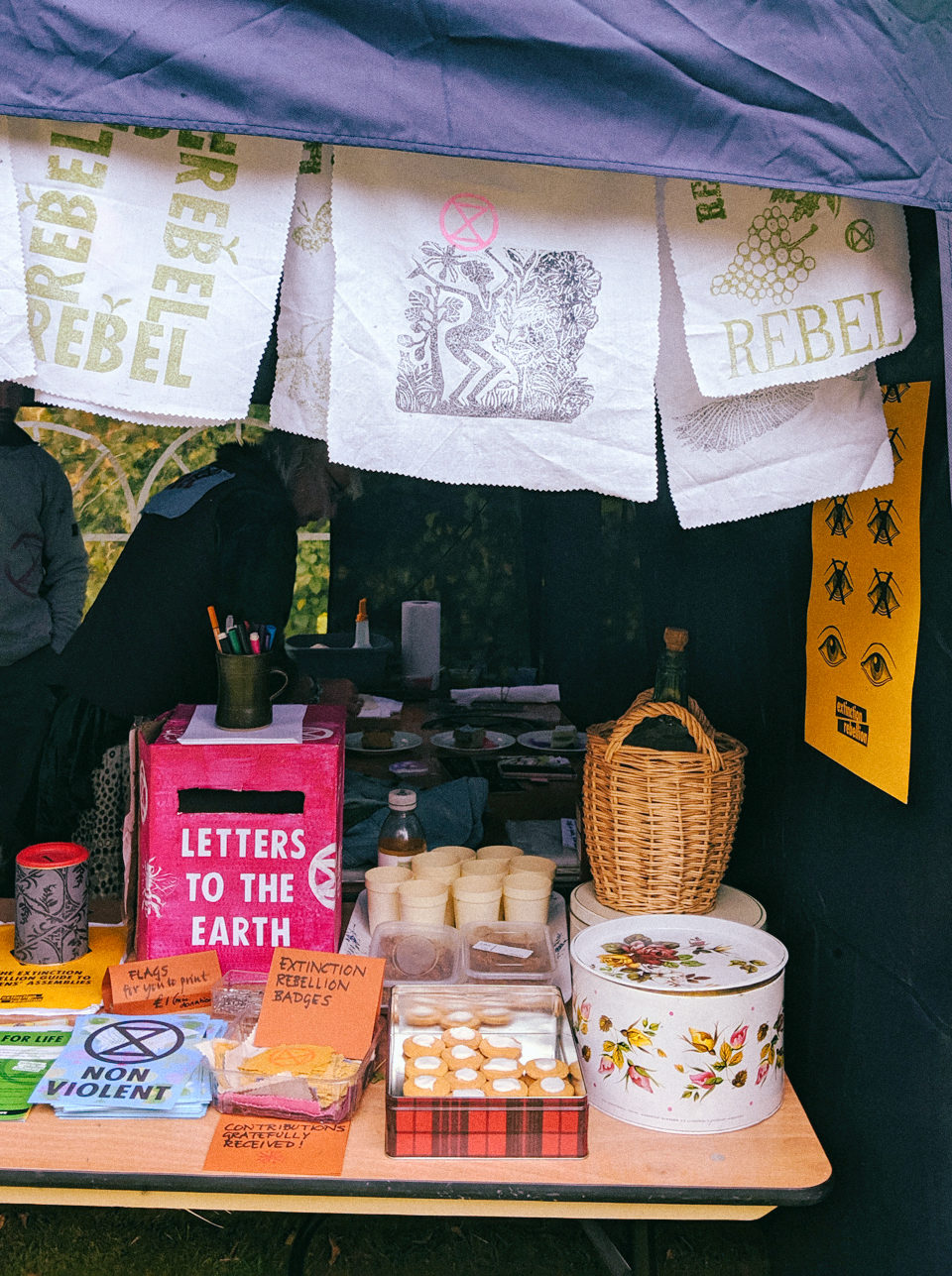
~ FINANCES ~
I’ve given to legal crowdfunds for activists who have been arrested in my area and I’ve helped raise donations by manning those outreach stalls and baking those all-important vegan flapjacks. Donations are highly appreciated, especially for legal matters because stepping up to fight for climate justice shouldn’t cost as much as it does for those who are able to put themselves into an arrestable position.
How to do it?
Donate to an environmental organisation or a local activist group nearby to you or find a relevant crowdfund which is in need of support. Crowdjustice is a great place to start.
Have more questions about how you can support climate activism? Ask away in the comments!








